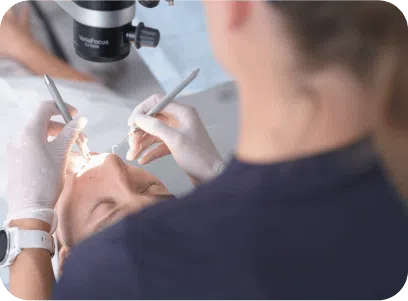Fluoridation of teeth
Tooth fluoridation is an important preventive procedure to protect teeth against cavities. It is used in cases where there is an increase in the occurrence of new dental caries. If you need additional tooth fluoridation, your dentist at Modri Zob will advise you accordingly.
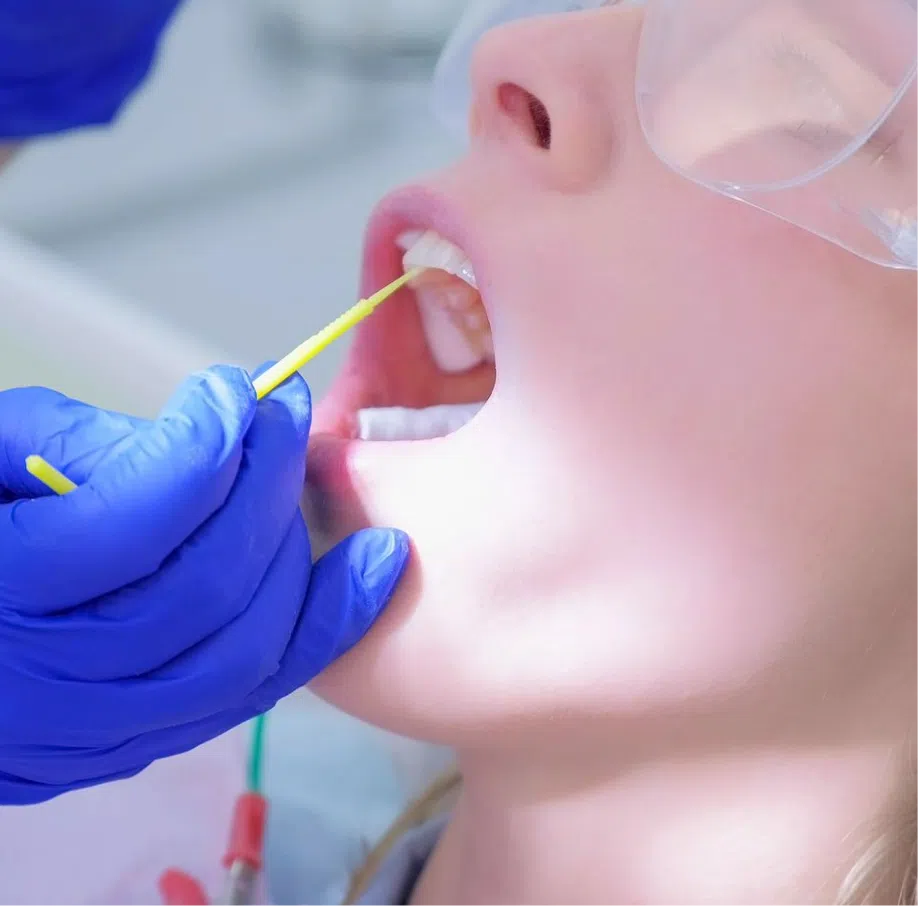
Strengthening tooth enamel
Fluoridation is an effective method for strengthening tooth enamel. Fluoride helps enamel maintain its strength and resistance to cavities.
Cavity prevention
Regular tooth fluoridation can reduce the risk of cavities. Fluoride forms a protective layer on the enamel that prevents the action of bacteria and acids.
Simple procedure
Fluoridation is a quick, painless, and non-invasive service performed during regular dental visits. This can swiftly improve the health of your teeth.
Demineralization of teeth
The surface of the enamel constantly undergoes an exchange of ions between the enamel and saliva. Enamel can demineralize (loss of minerals) and remineralize (gain of minerals). Bacteria in dental plaque produce acids, creating an acidic environment. In such an environment, enamel demineralization occurs, leading to enamel decay. This is a dynamic process, and tooth decay happens when demineralization processes dominate over time.
Remineralization process
When plaque is removed and pH rises again, the remineralization process begins, allowing enamel to absorb calcium and phosphate from saliva. This process can be greatly enhanced by the local action of fluorides. When present in saliva, fluorides integrate into enamel minerals and accelerate the remineralization process. Enamel minerals with incorporated fluoride are more resistant to acidic environments, reducing the rate of demineralization and cavity formation.
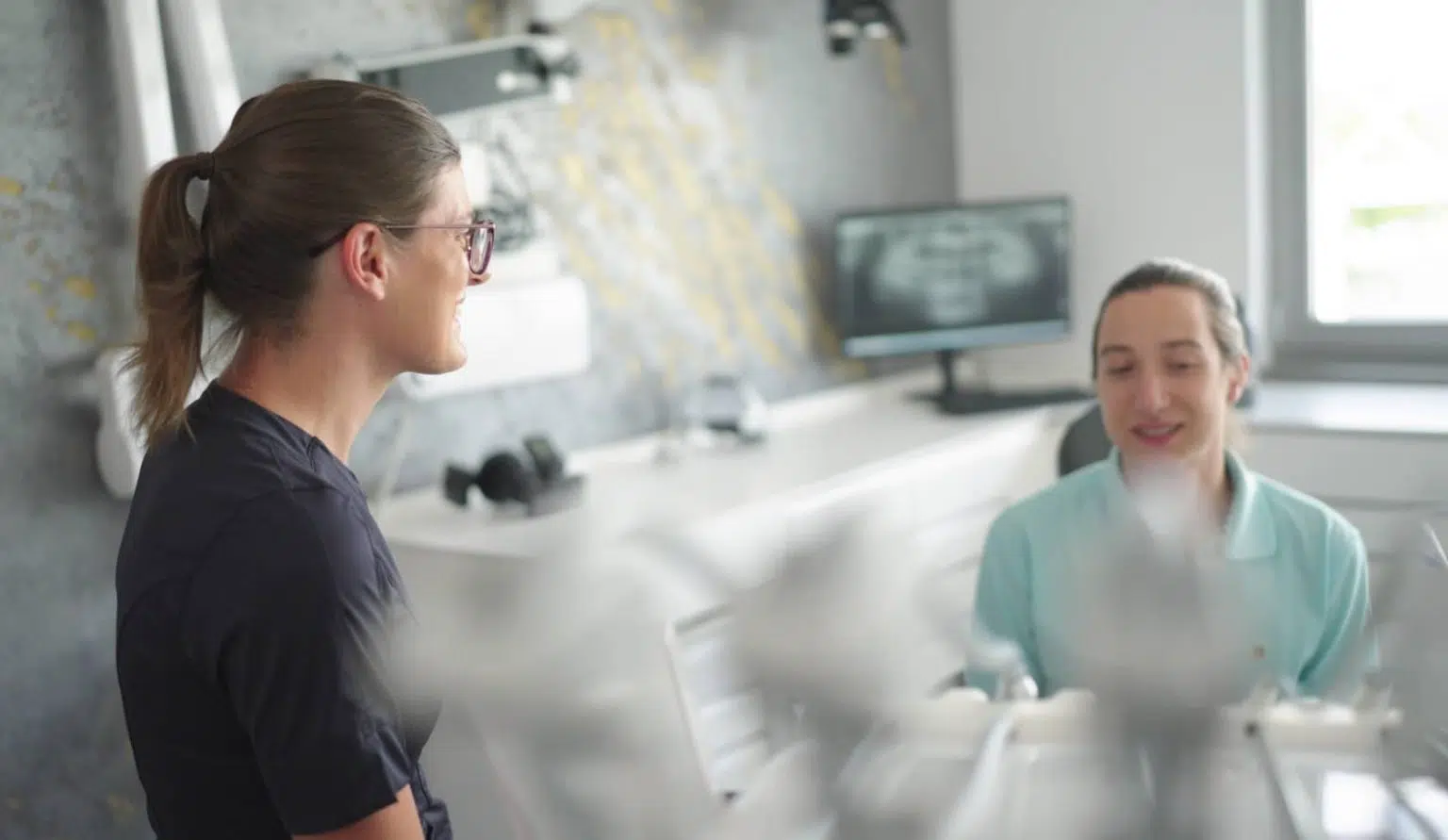
How does tooth fluoridation work?
Examination and assessment of fluoridation
Need The tooth fluoridation procedure starts with a thorough examination of your teeth by an experienced dentist or dental hygienist. During the examination, we will assess the condition of your teeth and gums to determine if fluoridation is appropriate for you. Based on this assessment, the need for fluoridation is determined, and the procedure is tailored to your specific needs.
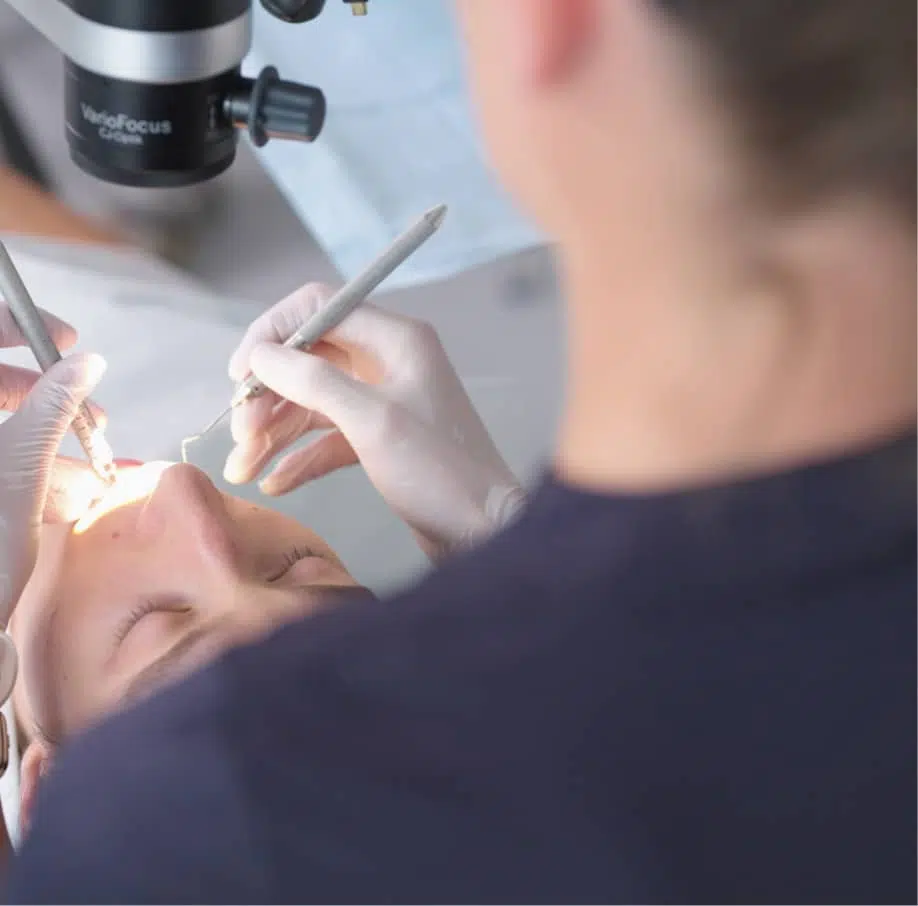
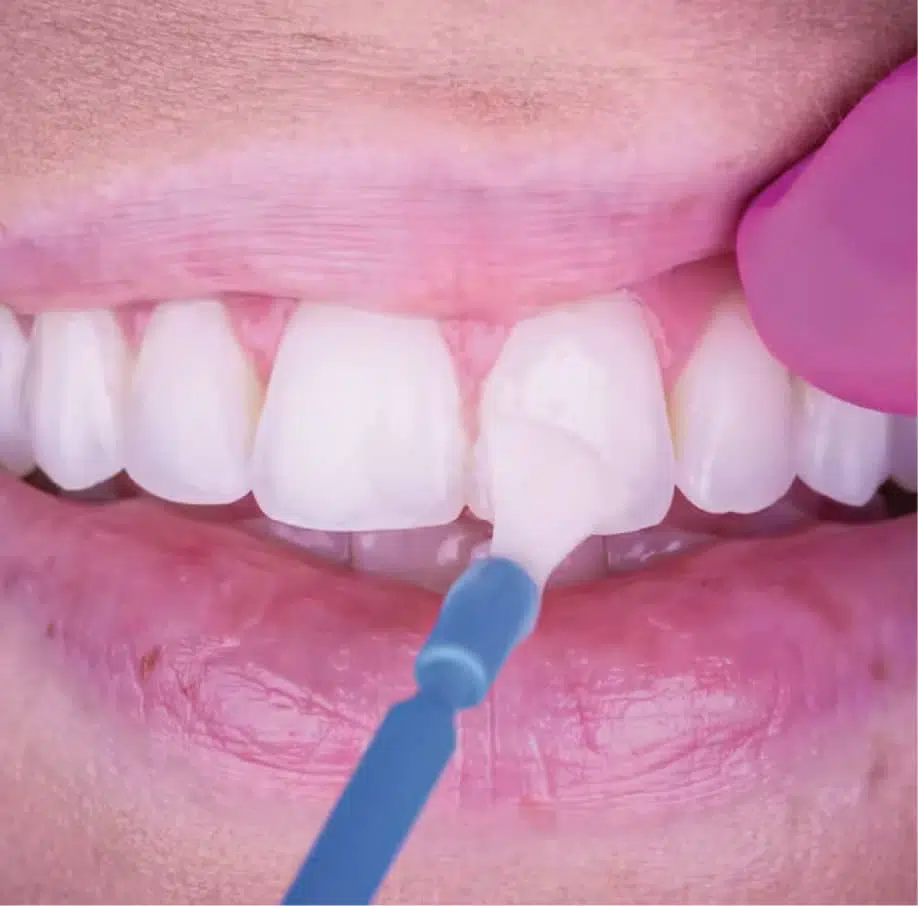
Preparation of teeth and application of fluoride gel
Once the need for fluoridation is confirmed, your teeth will be prepared for the procedure. First, the teeth are thoroughly cleaned to remove any plaque and bacteria. ThThen, a fluoride gel with a concentration of fluoride suitable for your needs is applied to the surface of the teeth. The gel forms a protective layer on the enamel that helps prevent cavities and strengthens the tooth enamel.
Treatment and aftercare advice
The fluoride gel is left on the teeth for a few minutes to properly absorb and form a protective layer. After the procedure, you will receive advice on proper oral hygiene and dental care to maintain the effects of fluoridation. Regularly practicing good oral hygiene, such as brushing, flossing, and using mouthwash, will further support the effectiveness of fluoridation and help keep your teeth healthy over time.
Experienced team of experts
Our experienced team of dentists brings extensive knowledge and expertise, ensuring safe, effective, and individually tailored fluoride treatments.
Long-lasting results
With proper fluoridation and regular adherence to dental care advice, you will enjoy long-lasting protection and health for your teeth.
Non-invasive procedure
The tooth fluoridation procedure is non-invasive, maintaining the health of your teeth and minimizing discomfort.
Top-quality equipment
We use the most advanced equipment for tooth fluoridation, enabling precise and effective execution of the procedure.
Patients love us
... and their new smiles! 🙂

Modri zob Nova Gorica

Modri zob Kranj

Modri zob Kranj

Modri zob Kranj

Modri zob Nova Gorica

Modri zob Nova Gorica
Answers to frequently asked questions
How do fluorides work?
Fluoride coatings applied to teeth in the clinic contain high concentrations of fluorides that act on the tooth surface. Together with calcium, they form compounds that act as a reservoir of fluoride ions. When the pH in the mouth drops, fluoride ions are released into the saliva, preventing enamel decay long after the coating is applied.
How to ensure optimal fluoride intake at home?
For individuals with a low risk of cavities, using fluoride toothpaste twice a day is sufficient. After brushing, simply spit out the toothpaste without rinsing your mouth with water.
People with a moderate risk of cavities, defined as having up to two new cavities in the last three years or conditions like interproximal fillings, inadequate fillings, fixed dental appliances, or difficult tooth anatomy that hinders easy cleaning, should use fluoride toothpaste, daily fluoride mouthwash, and regular fluoride coatings in the clinic.
Those at high risk of cavities, defined as having three or more new cavities in the last three years or conditions like frequent consumption of sugary drinks and foods, frequent snacking between meals (more than three times a day), burning mouth syndrome, radiation, or chemotherapy, should use fluoride toothpaste and mouthwash, use chlorhexidine mouthwash for a few days each month, and have regular fluoride coatings in the clinic.
How is fluoride coating applied?
Fluoride coating is applied to clean teeth, which may be further cleaned with a polishing brush if necessary. The fluoride coating is then applied to clean and dry teeth and allowed to dry. After application, you may feel a slightly rough surface on the teeth, which is normal as a thin film of the coating remains on the teeth. It is recommended not to eat for at least 2-4 hours after application and not to brush your teeth for at least 6 hours to ensure the coating remains on the teeth for as long as possible.
Who is tooth fluoridation suitable for?
Fluoride coatings are recommended not only for children but also for adults. For those at moderate risk of cavities, fluoride coatings are recommended every 4-6 months, and for those at high risk, every 3-4 months, until the condition improves.
How often should tooth fluoridation be performed?
It is recommended that tooth fluoridation be performed every 6 to 12 months, depending on individual needs and the risk of cavities.
Is tooth fluoridation safe?
Yes, tooth fluoridation is safe when performed by professionals. Our team ensures the safe and effective execution of the procedure.
Is fluoridation suitable for people with sensitive teeth?
Yes, fluoridation is suitable for people with sensitive teeth, as it helps reduce sensitivity and strengthen tooth enamel.
You might also be interested in...


